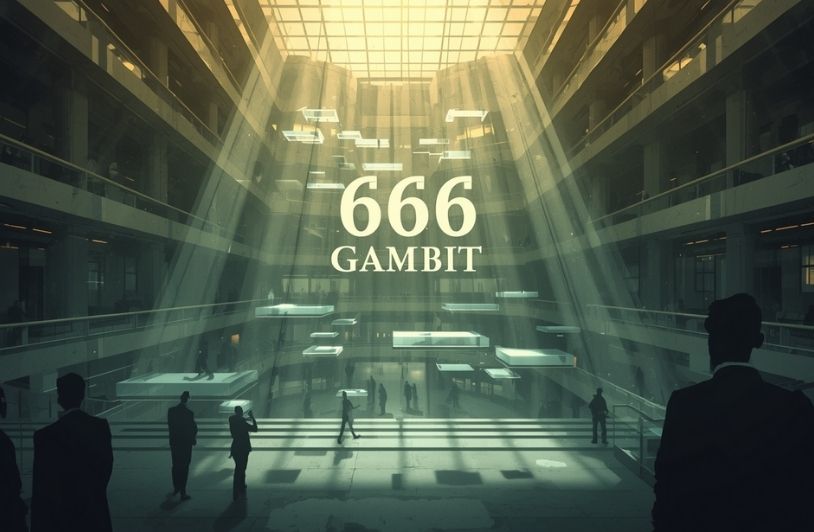High-stakes political strategy emerges when leaders pursue rapid, consequential decisions without sufficiently engaging the public. These decisions may involve budget reallocations, emergency powers, regulatory changes or shifts in national priorities. Although such actions are often justified as necessary in moments of urgency, they bypass the deliberation that stabilises democratic processes. The dynamic resembles systems that operate on high volatility: outcomes become harder to predict, and the public must adapt to consequences they did not help shape. This is why critics sometimes use chance-based metaphors, similar to how observers describe the shifting patterns seen in 666 Gambit Casino, to illustrate the volatility created when decisions lack transparency.
The Structural Risks of Compressed Decision-Making
When political actors accelerate decision cycles, institutional safeguards become strained. Agencies have less time to assess impacts, legislative bodies cannot fully review implications and civil society groups lose the opportunity to contribute expertise. These gaps create downstream effects that citizens confront long after the decision is made. Whether the issue concerns environmental regulation, public spending or digital governance, the lack of consultation increases the likelihood of unintended consequences. In systems built on public accountability, speed without participation creates instability. The comparison to unpredictable environments, such as those referenced in analyses involving 666 Gambit Casino, reflects the way outcomes can shift abruptly when structural checks are weakened.
Midpoint Effects: How Citizens React When Information Is Limited
During the period between policy announcement and implementation, public uncertainty often intensifies. Without accessible data, clear communication or defined timelines, citizens attempt to interpret fragmented signals from officials, analysts and media outlets. This midpoint phase becomes a turning point in public perception. Trust can erode quickly, especially when the policy appears to affect livelihood, healthcare or civil rights. People look for patterns to anticipate what may happen next, even if the available information is insufficient. This behavioural response mirrors how individuals interpret uncertain outcomes in probabilistic systems, including those referenced in entertainment platforms like https://666gambitcasino.com, where partial information encourages heightened attention but cannot guarantee clarity.
The Emotional and Social Costs of Exclusion
Political actions taken without public consultation generate more than administrative friction; they influence the emotional climate of a society. When residents feel excluded from decision-making, they experience a loss of agency. This can lead to elevated frustration, reduced civic engagement and, in some cases, long-term scepticism toward government institutions. Communities that perceive decisions as unilateral often become polarised, dividing between those who support decisive action and those who see it as overreach. Over time, the absence of dialogue contributes to social fragmentation, weakening community resilience in moments of crisis.
Hidden Consequences and Long-Term Drift
Decisions made without public dialogue frequently produce effects that emerge months or years later. An unreviewed budget shift might create gaps in social programmes, while a rushed regulatory change can introduce legal contradictions that require costly corrections. These outcomes resemble cascading failures: one adjustment made under pressure can destabilise related systems. Analysts sometimes compare this chain reaction to models of compounded risk, similar in metaphor to how high-variance games operate in controlled environments like 666 Gambit Casino. Although the comparison is symbolic, it highlights how cumulative unpredictability affects public institutions when transparency is absent.
Institutional Trust and the Fragility of Public Confidence
Democratic legitimacy depends on a stable relationship between citizens and institutions. Public consultation is one of the primary mechanisms that strengthens this relationship. When governments bypass it, trust weakens regardless of whether the final policy proves effective. Citizens often interpret unilateral decisions as signs that their perspectives carry little weight. This perception reduces compliance with new regulations, delays adoption of public initiatives and encourages political disengagement. Once weakened, trust is difficult to rebuild. A transparent consultation process provides a stabilising effect, reducing uncertainty and anchoring public expectations.
Why High-Stakes Politics Demands Public Voice
High-stakes decisions influence structural systems such as healthcare, education, taxation and environmental policy. These areas shape the conditions of daily life and therefore require broad input. Public consultation brings practical knowledge, reveals blind spots and tests assumptions before a policy becomes binding. Without that input, decision-makers may misjudge priorities, underestimate societal impact or overlook affected groups. The result is a policy landscape shaped by limited perspectives rather than collective insight. Observers sometimes describe this situation as a political gamble, echoing metaphors associated with environments like 666 Gambit Casino, because the range of possible outcomes expands when decisions lack democratic grounding.
The Path Toward More Accountable Policy-Making
A stable political system depends not only on expertise but also on openness. When public dialogue is integrated into decision-making, political leaders gain legitimacy and citizens gain clarity. Transparent communication reduces the “high-stakes” atmosphere that emerges when major reforms are introduced abruptly. Predictability strengthens civic participation, improves compliance and encourages informed public debate. Conversely, decisions made without community involvement impose uncertainty that affects both emotional well-being and long-term planning.
CLICK HERE TO DONATE IN SUPPORT OF OUR NONPROFIT COVERAGE OF ARTS AND CULTURE




